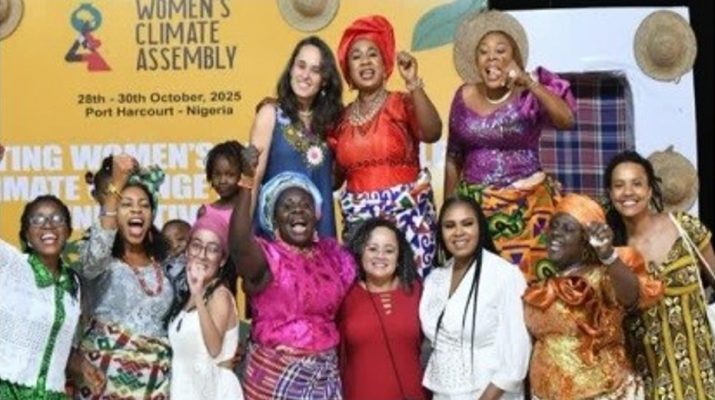Activists in environmentally impacted regions, the Niger Delta and the Amazon Rainforest in Brazil demand climate justice from governments and multinational oil companies for the degradation of their activities have caused in the host communities
By Chinedu Oguh, Port Harcourt
History was made when women from two of the world’s most environmentally challenged zones, the Niger Delta and Amazon Rainforest in Brazil, met in Port Harcourt, the Rivers State capital, to demand climate justice for the regions.
Meeting under the aegis of the Women Climate Assembly (WCA), organized by Kebetkache Women Development and Resource Centre, with support from Global Alliance for Green and Gender Action (GAGGA), the Amazonian and Niger Delta Women say their coming together is aim at pushing global action towards mitigating and remediating the environmental disasters and climate change impacts suffered by their regions and people.
The meeting, with the theme “Promoting Women’s Critical Role in Climate Change Mitigation Initiatives” had participants from different communities across Niger Delta and Brazil.
Executive Director of Kebetkache Women Development and Resource Centre, Dr. Emem Okon said the key objective of the 3-day WCA meeting, which was held in Port Harcourt on Thursday October 30, 2025 is to strengthen and unify women led struggle against destructive extraction activities and false solutions to the climate crises.
In an open address to the delegates from the two regions, Dr. Okon said, “This year, Kebetkache gathers women leaders from the Amazon Region in Brazil, and local Nigeria Delta Women Voices to forge global South-South solidarity, share stories of resistance and resilience and craft actionable demands for a just transition beyond extractives.
“We are here to build solidarity and advocate for change. We will identify the challenges, make our demands and continue to amplify voices, until we find solutions to address the climate change issues.”
She urged the delegates to engage in dialogue, build awareness and strategy towards challenging the “greenwashing at upcoming forums like COPZO and to reject carbon markets and advocate for African-led solutions to floods, heat stress and resource depletion”.
Continuing Dr. Okon stressed the need for women to be included in decision-making, while urging governments at the various levels to properly address issues concerning women by allowing them to be part of arriving at decisions that affect them and the society as a whole.
“How are we benefiting from the oil business? Women in the communities that are represented in this conference, how are they benefiting from extractive? Can we move forward without extractives?
“It needs all of us, including the corporations that are exploiting the national resources and the government that are giving them license to reflect. Are there better ways of carrying out our extractive activities without harming the environment?” she asked.
In their own contributions, Maira do Nasgmento and Carlorina de Moura from Minas Gerais in Brazil and of the Instituto Cordilheria, respectively, stressed the similarities in the plight of the Nigeria Delta women and their counterparts in Brazil on the issues of climate crises and environmental degradation.
They argued that women bear the brunt of climate change impact, while emphasizing the critical role women play in climate change and mitigation initiatives.
Nasgmento and Mours said “It is important to say that women are differently affected by climate change. We are historically working in the care of the family and care of the community”.
Mours noted “It’s harder in a contaminated environment, in a place where people are sick because of the problems in the environment, we (women) are the environment. Environment is we. So what happens in the environment happens in our body. Women’s bodies feel the impacts of climate change differently.”
Maira do Nasgmento and Carolina De Moura agreed that the 2025 Women’s Climate Assembly created opportunities for women from the two countries to work together and develop strategies for pushing global action towards climate justice.
“It’s important also that we want to stop the corporations that are causing the climate change and climate crises all over the world.
“The problems we already have in our communities need to be solved. We need remediation and to clean the river and restore the forests, and clean the reef. And we need public policies to do it and finance programs that goes down directly to the communities” they said.
Port Harcourt based Environmental activist and lawyer, Comrade Celestine Akpobari in his own message, stressed the important role women play in the home and society at large. The Ogoni born activist further said “I have a wife and I have female children in the house. And I know their importance and role they play. And the day they don’t support me, throughout that day I will be unproductive outside, he said.
Celestine Akpobari who is also a politician stressed the need for the society and government to be conscious of the role and urged the women not to be deterred in the pursuit of their God-given function.




